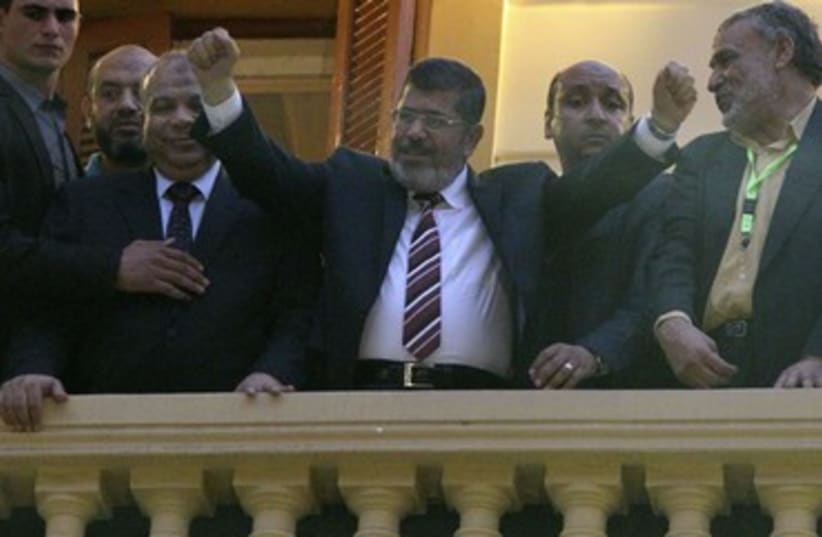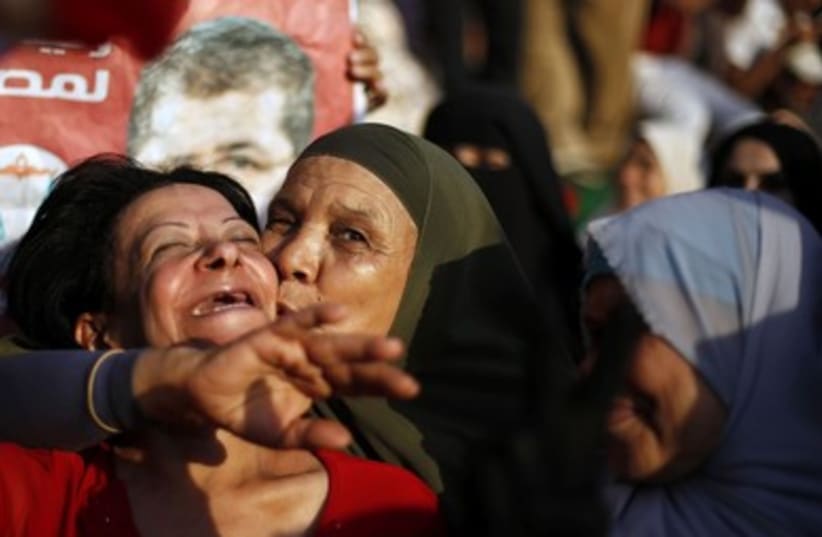
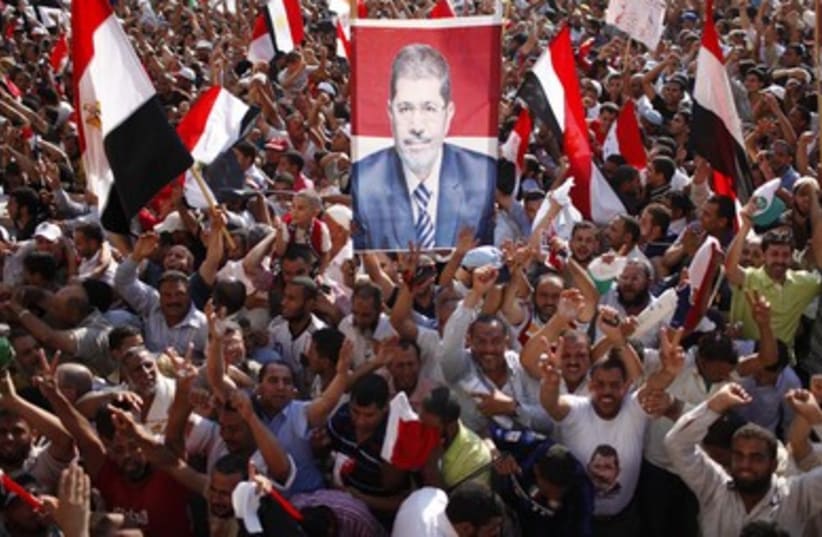
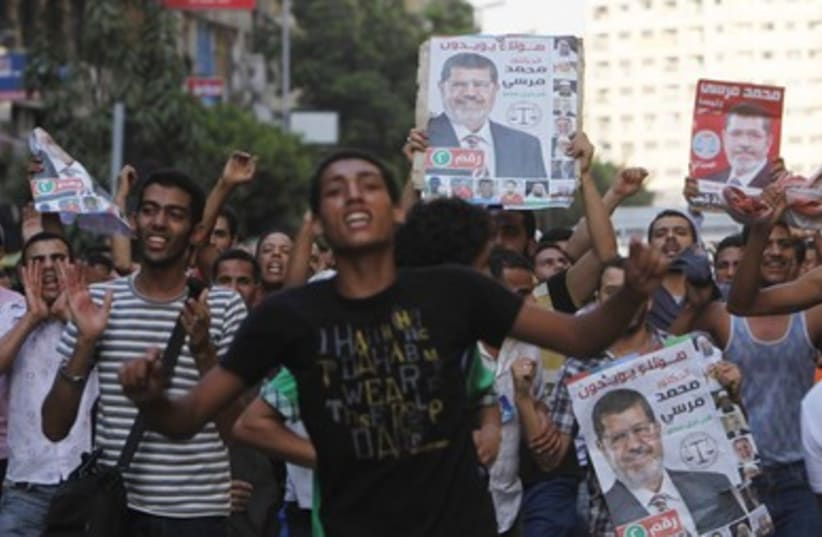
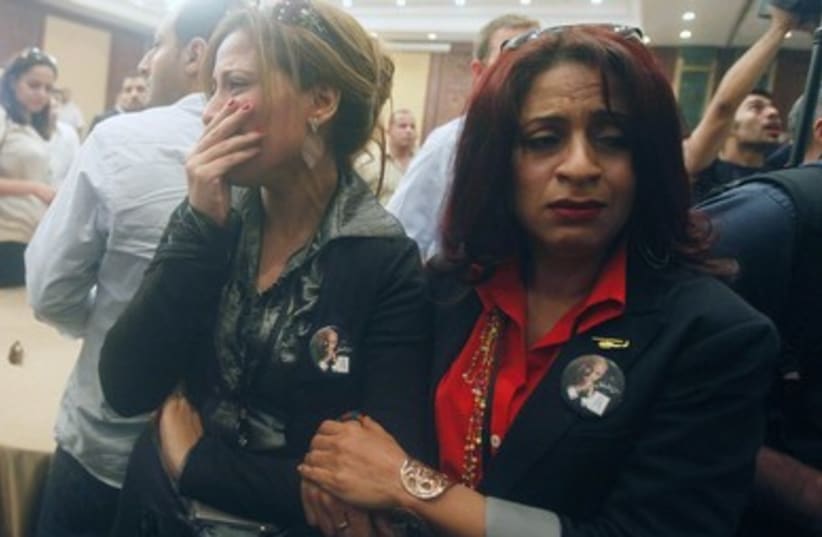
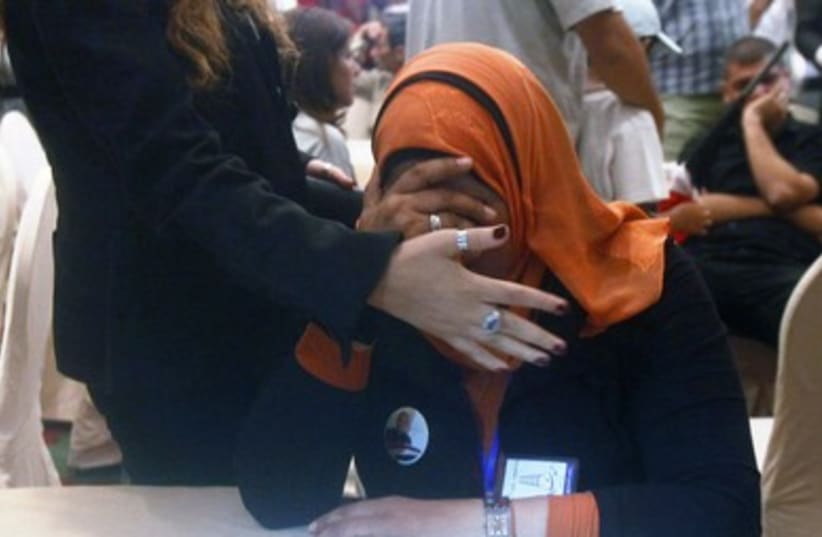
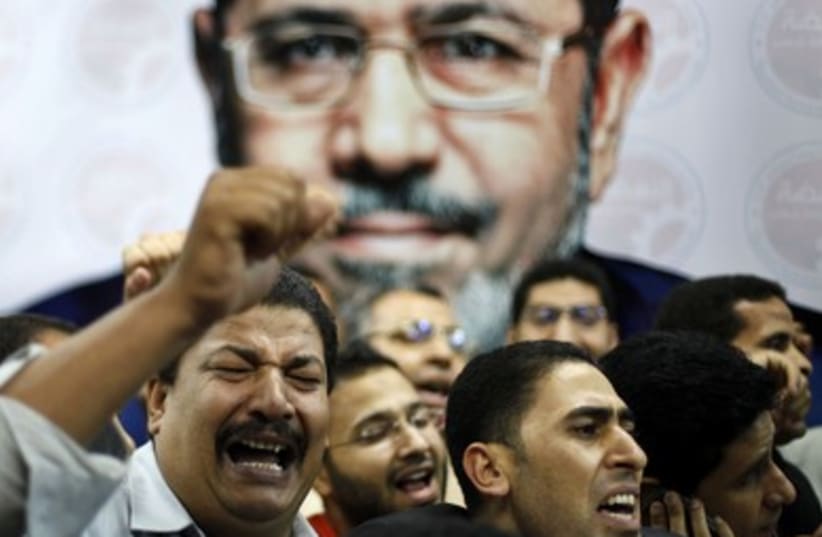

The Brotherhood candidate was elected with 51.73 percent of the vote or 13,230,131 of a total 25,577,511 valid votes cast.Morsy succeeds Hosni Mubarak, who was overthrown after a popular uprising in February 2011. The 20-strong Supreme Council of the Armed Forces (SCAF) then took power of the largest Arab nation.SCAF, which has ruled since then, has this month curbed the powers of the presidency – meaning the head of state will have to work closely with the army on a planned democratic constitution. SCAF promised to hand over power to the democratically elected government after this month’s elections, but recent moves to expand the military’s authority have led to concerns that the junta will not do so.Farouq Sultan, head of the Egyptian election commission, announced the results at 5:30 p.m. Cairo time in a press conference at the State Information Service headquarters in Nasr City. Morsy beat his opponent, former Mubarak prime minister Ahmed Shafik, by over three percentage points.Israel extended a supportive hand to Egypt’s new leader soon after the results were announced, with the Prime Minister’s Office saying that Israel “looks forward to continuing cooperation with the Egyptian government on the basis of the peace treaty between the two countries, which is a joint interest of both peoples and contributes to regional stability.”Morsy, 60, earned a doctorate from the University of Southern California and was a member of the Brotherhood’s guidance office for years, serving time in jail under Mubarak. He entered politics in 2011, when the Brotherhood founded the Freedom and Justice Party.Shafik, a 70-year-old former air force commander who later served as civil aviation minister, was appointed Mubarak’s prime minister in January 2011 after the Egyptian Revolution, but resigned a month later.The thousands of Brotherhood supporters in Tahrir Square greeted the dramatic victory by chanting “Allahu Akbar!” and waving national flags.“Say! Don’t fear! The military must go!” the crowds chanted.Shafik offered no immediate reaction.He has said he would offer to serve in a Morsy administration.
Iran congratulates Egyptians for 'Islamic Awakening'Iran’s Foreign Ministry congratulated Egyptians on Sunday for the victory of Morsy in the country’s first free presidential election and said the country was in the final stages of an “Islamic Awakening.”“The revolutionary movement of the Egyptian people... is in its final stages of the Islamic Awakening and a new era of change in the Middle East,” the ministry said in a statement on the Iranian Students’ News Agency.The United States congratulated Morsy for his “milestone” victory and urged the Muslim Brotherhood leader to form his government carefully and respect the right of all Egyptians as he takes power.
Egyptian social media reaches a fever pitchEarlier on Sunday, Egypt’s interim prime minister, Kamal al-Ganzouri, dismissed as rumors recent reports that former vice president and former spy chief Omar Suleiman and several prominent businessmen had left Egypt in the case that Morsy came to power.According to a report in Al-Ahram, Ganzouri told reporters that his interim government will hand over power on June 30, when the new president creates a cabinet.In the build-up to the announcement, Egyptian social media reached a fever pitch with frantic tweets about army helicopters hovering over Cairo, fears the streets would descend into chaos post-announcement and reports the the country’s phone lines were jammed.Twitter user Gigi Ibrahim tweeted that shops had closed in fear of a backlash, and blamed the “abnormal” situation on deliberate fear-mongering by SCAF.Meanwhile, on his official Facebook campaign page, Shafik posted photographs of protesters in Tahrir Square with the caption, “These are historic moments... have you made history?” During and following the announcement of Morsy’s victory, “Muslim Brotherhood,” “SCAF,” “Tahrir Square” and “Egyptian” also became trending topics on Twitter.Before the announcement, few troops were on the streets but security officials said they were ready to respond to trouble. Government workers around Tahrir Square were encouraged to go home for the day.Streets in the center of the capital were very quiet, shops were closed and people stayed indoors, anxious for news and assailed by rumors of results favoring both of the candidates.Tensions grew higher as the scheduled time of 3 p.m. drew near and then passed without the press conference starting.Commission chairman Sultan finally opened the press conference at 4:40 p.m. with a warning that if the restless audience could not be quiet, the announcement would be canceled.“Egyptians have inspired the world,” he began, as some expressed impatience with his almost hourl-ong speech. “I had hoped to announce the results today in moments of celebration, but not everyone gets what he wishes,” the chairman said.Sultan said that while the election was the true representation of the people’s will, defeated candidates complained of fraud after the results. Noting that there had been 456 appeals by both candidates, he said the committee found 2,154 forged identity cards in the elections.Regarding allegations that Christians had been prevented from voting in Minya, Sultan said a subsequent investigation showed it was unclear who had intimidated voters.
Reuters contributed to this report.
